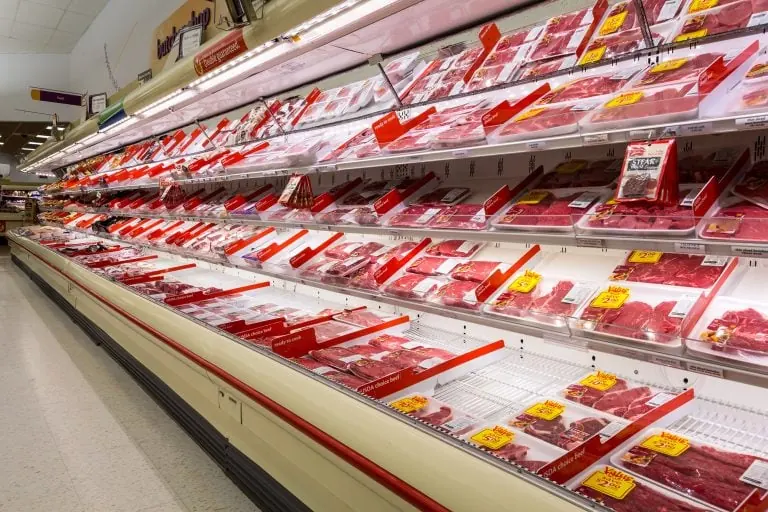
These items are prone to spoiling if kept at room temperature for too long, hence they must be stored at a specific temperature.
While commercial refrigerators are made specifically for this purpose, you still need to understand and follow certain food safety guidelines to make the best use of your commercial fridge and keep your food items fresh for a longer period of time.
A commercial grade refrigerator is a fridge designed for large-scale commercial refrigeration. These industrial refrigerators are larger than normal, more powerful, have larger compressors, and are highly reliable and cost-efficient. They are used by different kinds of businesses, such as restaurants, cafes, bars, grocery stores, supermarkets, flower shops, and pharmacies.
The biggest difference between a commercial grade refrigerator and a normal domestic fridge is the size. Commercial grade refrigerators are usually very large as they are required to store large amounts of food and ingredients. Moreover, the refrigerant used in commercial refrigerators is also different and much more efficient than regular refrigerant.
Another huge difference comes in durability and reliability. Commercial fridges have a very durable design and are extremely reliable as food businesses cannot afford downtime at any cost. If you want to learn more about the difference between commercial fridges and domestic fridges, check out our article here.
Every food business that uses commercial refrigeration follows certain guidelines to store food items safely. The most important of these guidelines are:
Proper cleaning is a must when it comes to food storage. Make sure that you clean your commercial fridge and its cabinets thoroughly before storing food in it. Bacteria and fungi tend to grow rapidly if kept unchecked for a long period of time. They grow in corners and behind shelves where food debris slowly collects over time.
Industrial cleaners that are made for cleaning commercial scale refrigerators are available.
Another interesting thing is that commercial refrigerators are specially made to be easier to clean, as their cabinets and shelves are easily removable.
If you'd like to learn more about how to clean your commercial fridge, check out our article here.
Another important thing when it comes to food storage in commercial fridges is how you arrange food items. Food items are usually arranged on shelves according to their cooking time.
Ready-to-eat foods or ingredients that take less time to cook are stored on the top shelves, whereas food items that take longer to cook are stored in bottom cabinets. Fruits, leafy vegetables, sweets, cooked items, dairy products, and eggs are stored on the top shelves. Meat, nuts, and canned foods are stored in the bottom cabinets.
This may not seem significant but food item arrangement can have a huge impact on how long they remain fresh in the fridge.
Read more about organising products inside your commercial display fridge here.
Setting the right temperature for your commercial grade fridge is of primary significance when it comes to food storage. You want to set a temperature that is neither too high nor too low. Too low a temperature can ruin the taste of ingredients and food items as they will require defrosting, whereas a temperature too high can cause them to spoil.
A temperature range of 3 to 8 degree Celsius is recommended for commercial refrigerators. This is the optimum temperature where most food items stay safely preserved and maintain their taste and texture.
Food safety is a legal obligation for food businesses. As food businesses are responsible for serving their customers fresh products, food safety becomes a major concern for these businesses.
Food safety is of the utmost importance. Food items not stored properly soon begin to spoil and become health hazards. If a customer consumes food that has not been stored properly and gets sick, the business may land itself in a lot of legal trouble.